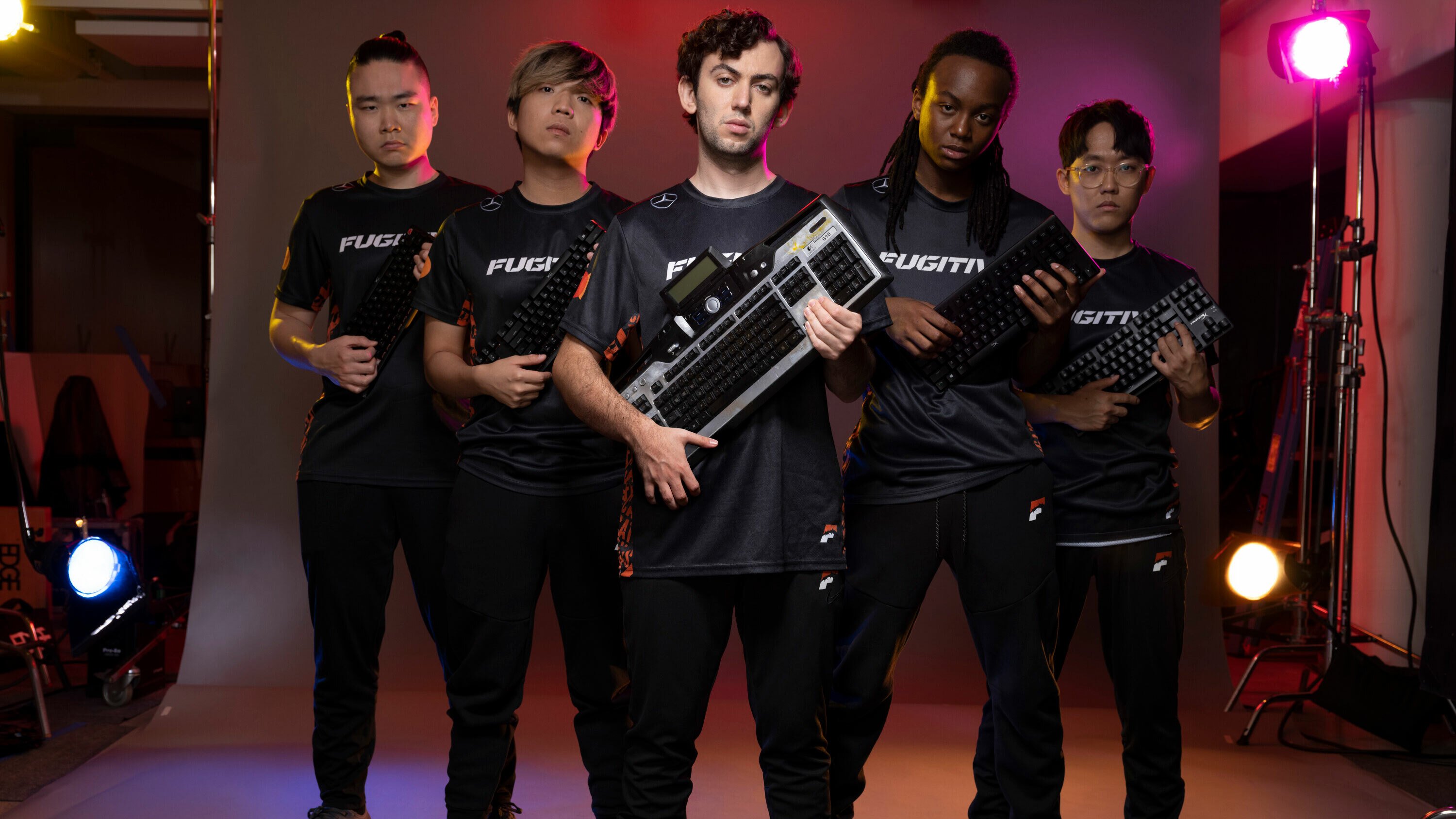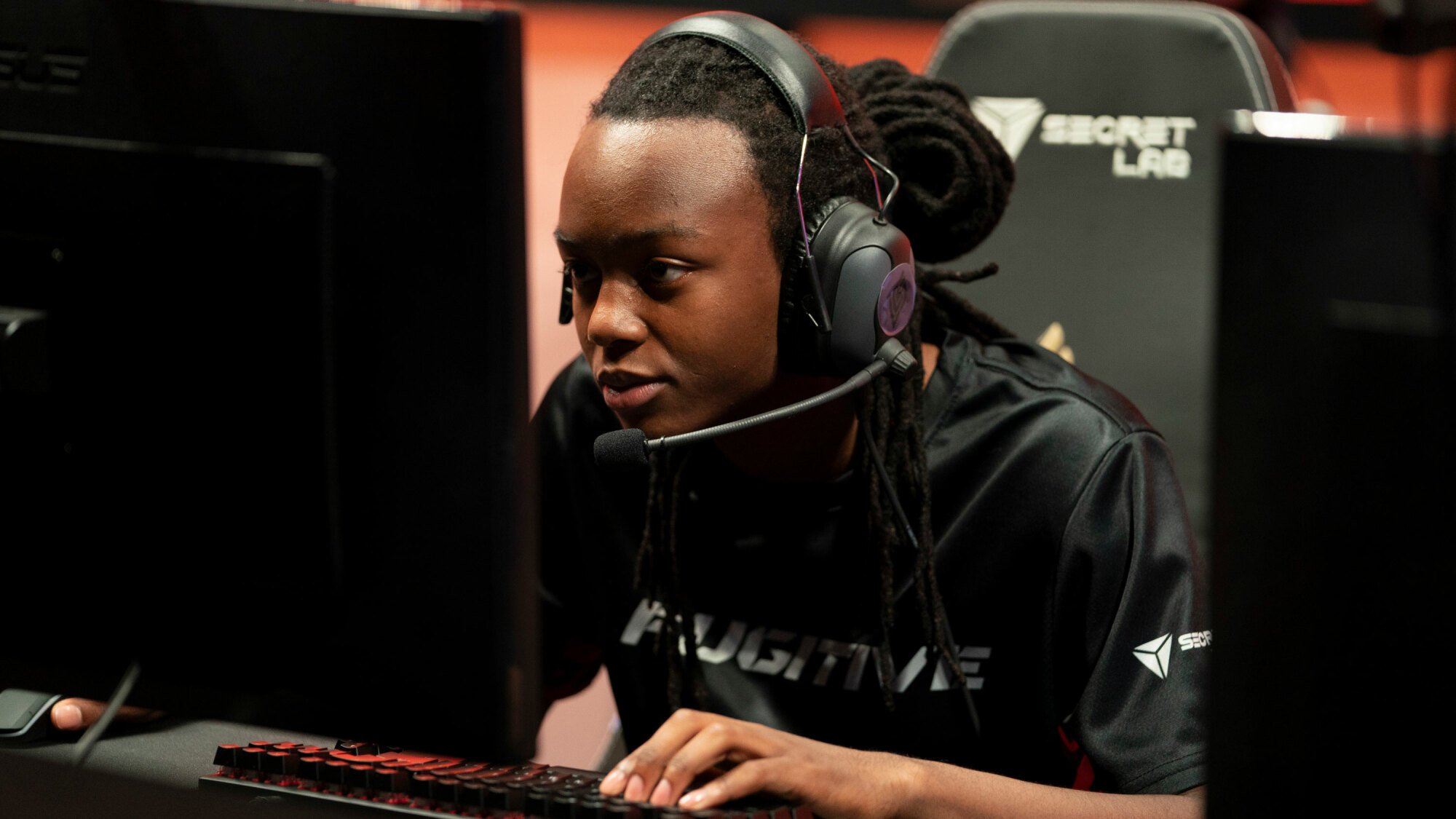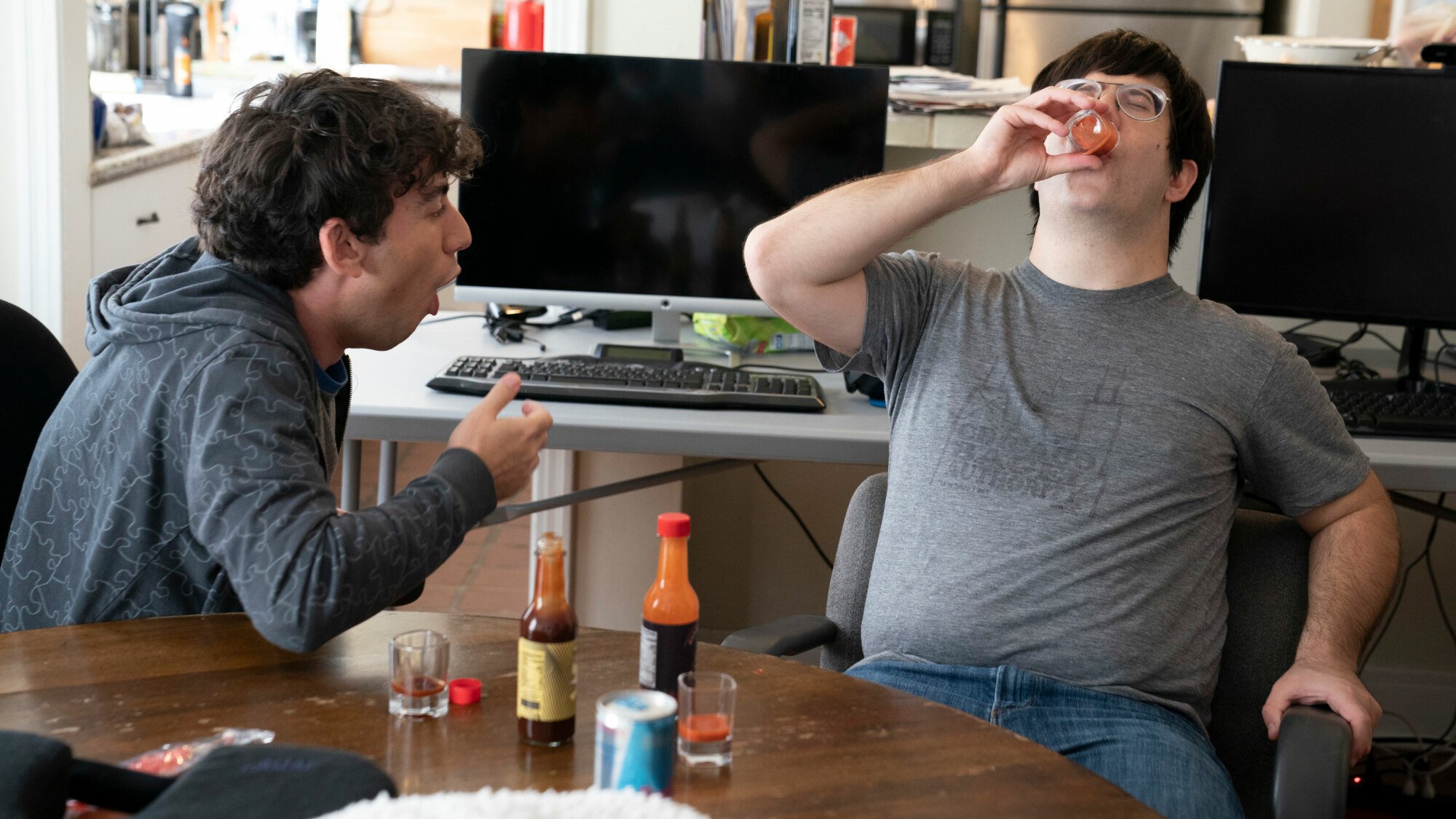
Players didn’t make me cringe once. It would have been so easy for the faux documentary esports series on Paramount+ to lean into a satire of offensive stereotypes. But Players chooses peace over violence, and the result is one of the strongest originals from the streaming service so far.
It helps that the new series comes from American Vandal co-creators Dan Perrault and Tony Yacenda. As fans of the Netflix mockumentary would expect, there are plenty of laughs here. But where Vandal took a serious-minded high school incident and made it a silly story, Players does the opposite: It’s a smart and heartfelt character piece that drapes itself in the inherent silliness of adolescent gamers who got too much money and fame at too young an age.
Creamcheese (Misha Brooks) initially comes off like a juvenile douche. He’s an arrogant and boastful League of Legends pro who, we quickly learn, hasn’t ever managed to actually bring a championship home with his team, Fugitive Gaming. But he’s also lived that familiar real-world esports success story of having his team acquired by a major business figure in legacy pro sports.
So while Creamcheese may not be an actual winner, he talks and carries himself like one. That unearned chutzpah is challenged when Nathan Resnick (Stephen Schneider), the NBA team owner who also pays Fugitive’s bills, privately courts an emerging League phenom who calls himself Organizm (Da’Jour Jones).

Credit: Lara Solanki / Paramount+
The quiet and withdrawn 17-year-old from Philadelphia is quickly signed to Fugitive’s roster, and Nathan forces team coach and co-founder Kyle Braxton (Ely Henry) into forgoing training and making Org an immediate starter on the team. Cream is incensed by the move, which sets up an early conflict between the two pros that twists and evolves as Players‘ 10 episodes unfurl.
In the earliest episodes, it does feel like Perrault and Yacenda are serving viewers a video game-themed take on “Who did the dicks?” When we hear about how Org used to pee in jars at home so he could keep playing, or the time when Cream stole his lucky keyboard back from his unsupportive parents’ house, the writing sprints right up to the razor’s edge of hyperbolic stereotyping.
It’s all part of a larger plan, though. The story even shows its hand briefly in the first episode, when Cream gets emotional as he talks about how his parents filed a police report over the missing keyboard. When we return to that scene later with more knowledge of the characters, it just hits different. Players understands how gamers as a group tend to get pigeonholed as “losers,” and it’s not taking any of that shit.
Again and again, the series undermines its own big laugh moments by feeding us historical context that re-frames those moments in a new light. We learn early on that Cream’s original in-game handle was “Nutmilk,” and we instantly jump to crude conclusions about its meaning. But the truth is much more innocent, as a later episode reveals.
‘Players’ chooses peace over violence, and the result is one of the strongest originals from Paramount+ so far.
It’s a clever bit of plotting where the delayed torpedoing of expectations maximizes the follow-up moment’s emotional impact. Players repeats itself often, with that repetition adding pertinent details to every subplot along the way. The show’s writers know how funny gamer antics are in a vacuum, and they let those moments live on the screen for laughs. But the writers also weaponize added context very effectively to get us thinking about what, exactly, we thought was so funny.
That’s not to say Players is its own buzzkill. The comedy moments are genuinely funny and the details that bring added depth are presented in a completely nonjudgmental way. You’re not supposed to feel bad about laughing. It is some kind of comedy that a committed player would opt for jars over a bathroom toilet just to squeeze a few more minutes of gaming into the day.
What the show does do is remind us that all of these people are just that: complex human beings, with thoughts, feelings, desires, and histories that made them what they are. It’s perfectly understandable to laugh at the hyperbolic soundbites or juvenile behavior, but Players contends — rightly, I think — that it’s equally important to recognize that even the most dedicated and seemingly ridiculous stereotypical gamer has stuff they carry around.
Family strife. Romantic upheavals. Even health concerns. Relatable struggles all around. Cream, Org, and the rest of Fugitive have known these trials themselves in their own highly personal ways. Cream may come off like an overly arrogant perennial loser up front, but that whole shtick starts to make more sense as Players fills out his history.

Credit: Lara Solanki / Paramount+
None of it would work if not for the cast. Brooks and Jones both inhabit their roles exceptionally well, but they’re hardly alone. Henry’s turn as Kyle, aka Brax, is a clear standout. Brax is one of Cream’s oldest friends, but he’s also a married dad who is much more grown up and tuned into the ways of the world. Cream’s angry outbursts test Brax regularly, but the love Brax has for his friend carries through clearly in Henry’s terrific performance.
The documentary-like structure and blending of fact and fiction also work in the series’ favor. Recurring talking head-style interviews create an organic entry point into each major character’s worldview and mindset. And by grounding everything in the familiar visuals of Riot Games’ esports hit and the League of Legends Championship Series — neither of which you need to know inside-out; Players explains as it goes — the show feels like an authentic representation of modern gaming culture.
The long arc of the season develops into an underdog story characterized by the kinds of twists and turns you’d expect to find in a more traditional sports drama like Rocky or Rudy. But knowing these guys are destined to win one day in some fashion doesn’t detract from the journey they take to get there, or the various ways that journey impacts their relationships.
Players wins because of the people. For all their juvenile behavior and youthful vigor-fueled acts of self-sabotage, Fugitive Gaming is an easy crew to root for. The twist is that none of it is a send-up. It’s earnest and heartfelt. You’re supposed to love these guys. Players‘ subversion of expectations effectively peels away our surface understandings of games, gamers, and gaming culture to deliver a story that, refreshingly, does right by all three.
